It is believed that the very origins of writing itself may have developed out of early marks used to keep account of goods at ancient warehouses more than 5,300 years ago. The notion that pre-numerical counting systems pre-dated even written language, didn’t come as a surprise to many historians and archeologists who have long since recognized that the history of human civilization is largely indistinguishable from the history of commerce.
The story of the origins of monetary systems and commerce help provide a historical account of the origins and progression of accountancy, as commerce and accounting have run parallel to each other since their respective beginnings. For this reason, the history of accounting is often seen as indistinguishable from the history of finance and business.
Ancient Accountants of Egypt, Mesopotamia, Greece and Rome
Ancient Egyptian bookkeepers kept meticulous records of the inventory of goods kept in royal storehouses. The accuracy of these records was assured by the swift and severe penalty that came if mistakes were ever discovered.
Archeologist Dr. Gunter Dreyer of the German Institute of Archaeology discovered 5,300-year-old bone labels inscribed with marks and attached to bags of oil and linen in the Abydos, Egyptian tomb of King Scorpion I.
Describing inventory owners, amounts, and suppliers, these labels of antiquity are known to be the ancient origin of the counting systems that would eventually develop into the sophisticated accounting methods we’re familiar with today.
Other ancient societies also used accounting methods, including scribes in Mesopotamia who kept records of commerce on clay tablets. In ancient Greece, the account books of bankers show that they changed and loaned money and helped people make cash transfers through affiliate banks in other cities. In ancient Rome, government and banking accounts grew out of records kept by the heads of families.
14th Century - Double-Entry Bookkeeping
The most important event in accounting history is generally considered to be the dissemination of double-entry bookkeeping by Luca Pacioli in 14th century Italy. Pacioli was much revered in his day, and was a friend and contemporary of Leonardo da Vinci.
In fact, the Italians of the 14th to 16th centuries are widely acknowledged as the fathers of modern accounting and were the first to commonly use Arabic, rather than Roman, numerals for tracking business accounts.
Pacioli described double-entry bookkeeping, and other commerce-related concepts, in his book De Computis et Scripturis – translated in English to Of Reckonings and Writings.
The book was translated into five languages within a century of initial publication. The fundamentals of bookkeeping methods used today have actually changed little since the days of Pacioli.
19th Century – The Beginnings of Modern Accounting in Europe and America
The modern, formal accounting profession emerged in Scotland in 1854 when Queen Victoria granted a royal charter to the Institute of Accountants in Glasgow, creating the profession of chartered accountant (CA). Today, the longest standing societies of public accountants are found in Scotland.
In the late 1800s, chartered accountants from Scotland and Britain came to the U.S. to audit British investments. Some of these accountants stayed in the U.S., setting up accounting practices and becoming the origins of several U.S. accounting firms.
The first national U.S. accounting society was set up in 1887. The American Association of Public Accountants was the forerunner to the current American Institute of Certified Public Accountants (AICPA).
20th Century – The Development of Modern Accounting Standards
The accounting profession in the 20th century developed around, at first, state requirements for financial statement audits, and then around Federal requirements created by securities acts passed in 1933 and 1934 (which created the Securities and Exchange Commission), according to a July 1999 article in The CPA Journal.
In the 1970s, Congress and SEC demands for more reliable and comparable financial reporting led to the founding of the Financial Accounting Standards Board (FASB) in 1973. The FASB and the Governmental Accounting Standards Board (GASB) are now two of the main organizations responsible for establishing generally accepted accounting principles (GAAP) in the U.S.
21st Century – Accounting Regulation in Modern Commerce
Beyond the industry's self-regulation, the government also sets accounting standards, through agencies such as the Securities and Exchange Commission and laws such as the Sarbanes-Oxley Act of 2002, passed after the Enron and WorldComm accounting scandals.
The 21st century also saw the passage of the Dodd-Frank Act after the recession of 2008. The act contains 16 major areas of reform, including creation of the Financial Stability Oversight Council and the Volcker Rule that restricts banks from owning, investing, or sponsoring hedge funds, private equity funds, or any other type of proprietary trading operations that result in their own profit.
Looking to the Future
Accountants looking to the future have recognized that existing accounting principals in place in the United States known as the Generally Accepted Accounting Principals (GAAP), are likely to go the way of the dinosaurs at some point in the not too distant future.
The global standard outside of the US is the International Financial Reporting Standards (IFRS). As global commerce continues to grow, efforts are underway to create consistent accounting standards across borders through the widespread adoption of IFRS by American businesses and accounting firms who wish to continue to participate in the global economy.
Source: AccountingEdu.Org



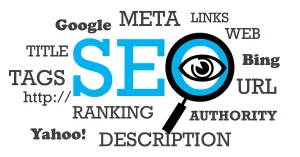
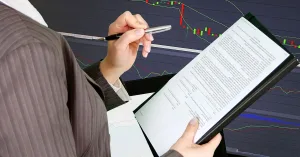


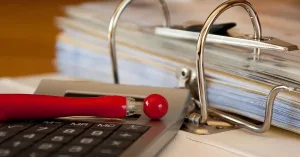


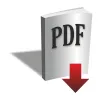


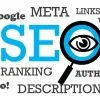
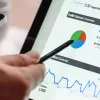





Add comment